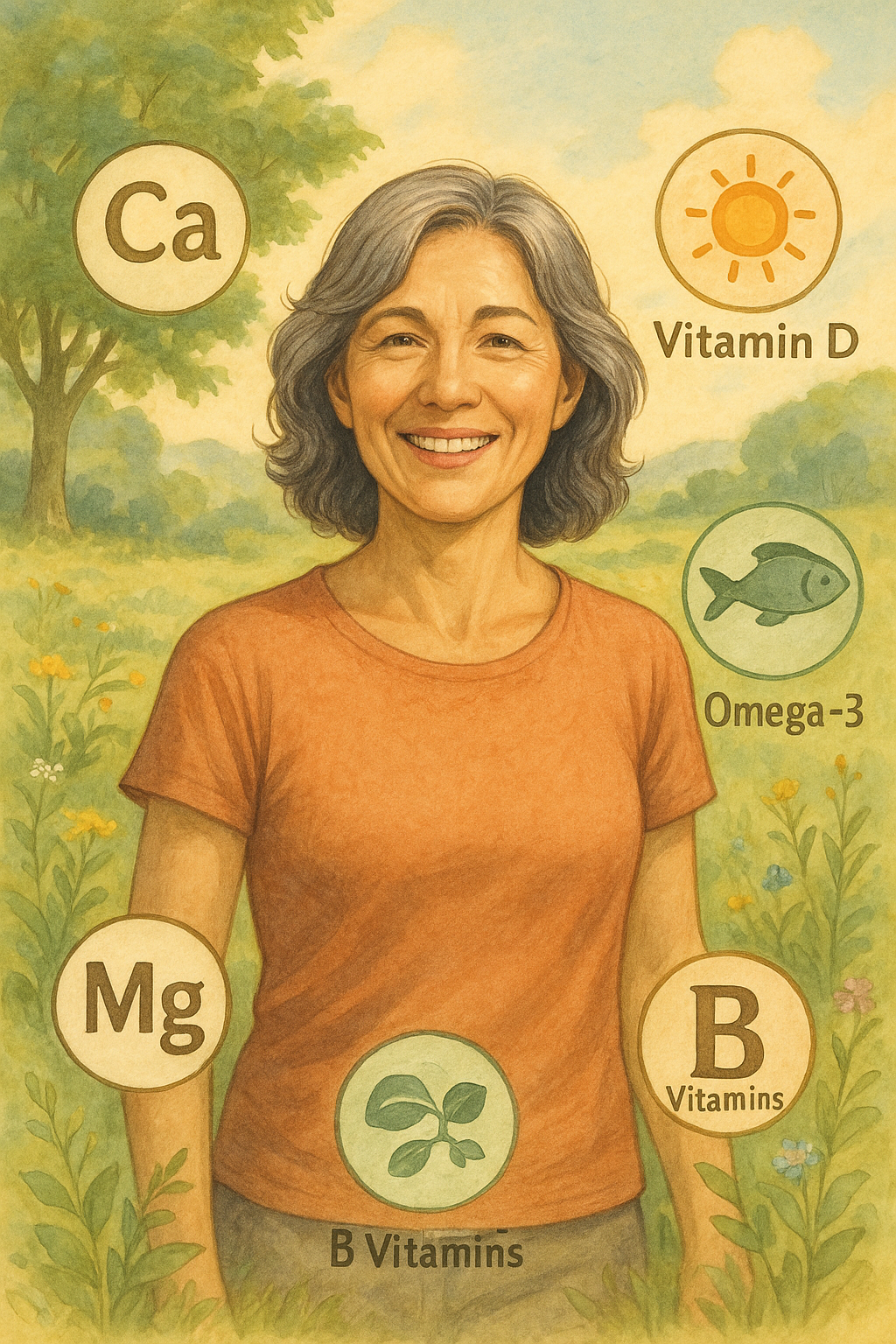
The Essential Nutrients Every Middle-Aged Woman Needs: Backed by Science
Share
As women transition into midlife, their nutritional needs shift dramatically. Hormonal changes, bone density concerns, and increased risk of chronic diseases make this life stage critical for optimizing nutrient intake. Science has long supported the importance of tailored nutrition to support health, energy, and longevity during these years.
1. Calcium: The Guardian of Bones
After menopause, estrogen levels decline, accelerating bone loss. According to the National Osteoporosis Foundation (2019), women lose up to 20% of their bone density in the five to seven years post-menopause. Calcium is essential to slow this process and maintain strong bones.
A randomized controlled trial published in The American Journal of Clinical Nutrition emphasized that daily calcium supplementation (1,200 mg) combined with vitamin D significantly reduced hip fractures among postmenopausal women (Tang et al., 2007).
2. Vitamin D: The Sunshine Vitamin That Supports More Than Bones
Beyond aiding calcium absorption, vitamin D plays a vital role in immune modulation and muscle function. A meta-analysis in The BMJ (2017) concluded that vitamin D supplementation reduces the risk of acute respiratory infections, particularly in those with low baseline levels — a common scenario in middle-aged women.
Furthermore, low vitamin D status is linked to mood swings and cognitive decline (Peterson & Heffernan, 2018).
3. Omega-3 Fatty Acids: Heart, Brain, and Joint Protector
Middle-aged women face an increased risk of cardiovascular diseases. Omega-3 fatty acids, abundant in fatty fish and algae oil, have been shown to reduce inflammation, lower triglycerides, and support brain health.
A landmark study published in Circulation (2019) found that women who consumed at least two servings of fatty fish weekly had a 15% lower risk of heart disease.
4. Magnesium: The Calming Mineral
Magnesium supports over 300 enzymatic reactions, including those involved in blood pressure regulation, glucose metabolism, and stress management — all key areas for midlife women.
Journal of Women's Health (2020) highlighted that magnesium supplementation alleviates premenstrual symptoms, anxiety, and may support better sleep quality among perimenopausal women (Volpe, 2020).
5. B Vitamins: Energy and Cognitive Allies
B vitamins — especially B6, B12, and folate — are crucial for brain health, red blood cell production, and cardiovascular protection. According to research in Nutrients (2020), inadequate B vitamin intake in middle-aged women is linked to higher homocysteine levels, a risk factor for heart disease and cognitive decline.
Conclusion
Middle-aged women must prioritize a balanced diet rich in calcium, vitamin D, omega-3 fatty acids, magnesium, and B vitamins. Supplementation can be considered under professional guidance, especially when dietary gaps exist.
Investing in these nutrients not only preserves bone and heart health but also fosters mental well-being, vitality, and graceful aging.
References
-
Tang BM, Eslick GD, Nowson C, Smith C, Bensoussan A. Use of calcium or calcium in combination with vitamin D supplementation to prevent fractures and bone loss in people aged 50 years and older: a meta-analysis. Am J Clin Nutr. 2007;86(6):1780-1790.
-
Martineau AR, Jolliffe DA, Hooper RL, et al. Vitamin D supplementation to prevent acute respiratory tract infections: systematic review and meta-analysis of individual participant data. BMJ. 2017;356:i6583.
-
Peterson AL, Heffernan ME. Vitamin D deficiency and depression in women. Women's Midlife Health. 2018;4(1):1-7.
-
Volpe SL. Magnesium in disease prevention and overall health. J Women's Health. 2020;29(4):561-568.
-
Kennedy DO. B Vitamins and the brain: Mechanisms, dose and efficacy—A review. Nutrients. 2016;8(2):68.
